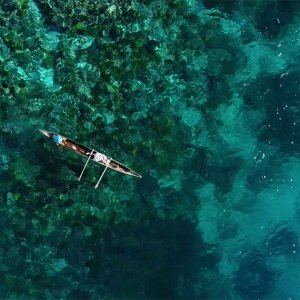Presented By: Ecology and Evolutionary Biology
EEB Thursday Seminar: Locating and learning from bright spots among the world’s coral reefs
Joshua E. Cinner, Professor, ARC Future Fellow and Pew Fellow in Marine Conservation, James Cook University

The continuing and rapid global decline of coral reefs calls for new approaches to sustain reefs and the millions of people who depend on them. In this talk, I present ongoing work by my research group aimed at rethinking reef conservation along two lines. First is directly confronting the drivers of change. In addition to environmental factors, there are socioeconomic drivers that influence the condition of coral reef ecosystems, though reef governance rarely focus on explicitly managing these. My colleagues and I analyzed data from >1800 tropical reef sites worldwide to quantify how key socioeconomic and environmental drivers are related to reef fish biomass, a key indicator of ecosystem condition and resource availability. Our global analysis reveals that the strongest driver of reef fish biomass is our metric of potential interactions with urban centres (market gravity), with important, but smaller, roles of local management, human demographics, socioeconomic development, and environmental conditions. These results highlight multiple underutilized policy levers that could help to sustain coral reefs, such as dampening the negative impact of markets. Second, drawing on theory and practice in human health and rural development, we use a positive deviance (bright spots) analysis to systematically identify coral reefs that have substantially higher biomass than expected, given their socioeconomic and environmental conditions. Importantly, bright spots were not simply comprised of remote areas with low fishing pressure- they include localities where human populations and use of ecosystems resources is high, potentially providing novel insights into how communities have successfully confronted strong drivers of change. Uncovering the mechanisms that underpin the ability of bright spots to confront high pressures may form a basis for novel policy approaches.
View YouTube video of seminar: https://youtu.be/qVywZwcWMiY
View YouTube video of seminar: https://youtu.be/qVywZwcWMiY